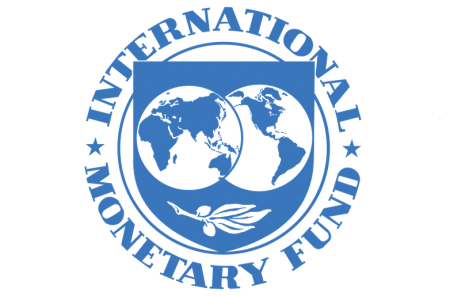IMF, World Bank Call for Halt to Debt Servicing as COVID-19 Drives African Economies Into Recession
PRESS STATEMENT
- FOR IMMEDIATE RELEASE -
Washington D.C., Friday, 10 April 2020 – The IMF and World Bank have called for a halt to debt servicing for the world’s poorest countries as the World Bank Group latest report revealed that sub-Saharan Africa was going into recession with initially projected 2020 growth adversely affected by the impact of the COVID-19 outbreak.
The IMF says the standstill of debt service to official bilateral creditors for the world’s poorest countries should help economies deal with the strong negative effects of COVID-19, particularly the sub-Saharan region whose growth is forecast to fall sharply and push the region into recession for the first time in over25 years.
“The COVID-19 pandemic is testing the limits of societies and economies across the world, and African countries are likely to be hit particularly hard,” said Hafez Ghanem, World Bank Vice President for Africa.
“We are rallying all possible resources to help countries meet people’s immediate health and survival needs while also safeguarding livelihoods and jobs in the longer term – including calling for a standstill on official bilateral debt service payments which would free up funds for strengthening health systems to deal with COVID 19 and save lives, social safety nets to save livelihoods and help workers who lose jobs, support to small and medium enterprises, and food security.”
IMF Managing Director, Kristalina Georgieva said in a statement that the institution was working “24/7 to support our member countries - with policy advice, technical assistance and financial resources”.
In a delivery entitled “Confronting the Crisis: Priorities for the Global Economy”, Georgieva set out a four priority action points list to deal with the COVID-19 impact and said that the IMF had $1 trillion in lending capacity and were placing it at the service of the membership.
“We are responding to an unprecedented number of calls for emergency financing—from over 90 countries so far. Our Executive Board has just agreed to double access to our emergency facilities, which will allow us to meet the expected demand of about $100 billion in financing. Lending programs have already been approved at record speed - including for the Kyrgyz Republic, Rwanda, Madagascar, and Togo—with many more to come,” Georgieva said adding; “And together with the World Bank, we are calling for a standstill of debt service to official bilateral creditors for the world’s poorest countries”.
According to the latest Africa’s Pulse, the World Bank’s twice-yearly economic update for the region, growth in the sub-region is forecast to fall sharply from 2.4% in 2019 to -2.1 to -5.1% in 2020.
As a result of the impact of the COVID-19, analysis shows that the region will suffer losses ranging from between $37 billion and $79 billion in output losses for 2020 due to a combination of effects.
They include trade and value chain disruption, which impacts commodity exporters and countries with strong value chain participation; reduced foreign financing flows from remittances, tourism, foreign direct investment, foreign aid, combined with capital flight; and through direct impacts on health systems, and disruptions caused by containment measures and the public response.
Several African countries, including Zambia, have reacted quickly and decisively to curb the potential influx and spread of the coronavirus, very much in line with international guidelines. However, the report points out several factors that pose challenges to the containment and mitigation measures, in particular the large and densely populated urban informal settlements, poor access to safe water and sanitation facilities, and fragile health systems.
The World Bank report recommended that African policymakers focus on saving lives and protecting livelihoods by focusing on strengthening health systems and taking quick actions to minimize disruptions in food supply chains. They also recommend implementing social protection programs, including cash transfers, food distribution and fee waivers, to support citizens, especially those working in the informal sector.
Issued by:
Eric Mwanza
First Secretary – Press & Public Relations
Embassy of the Republic of Zambia
Washington D.C.
Approved by the Ministry of Foreign Affairs

